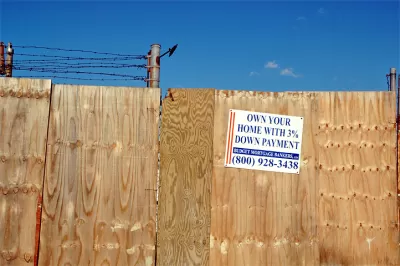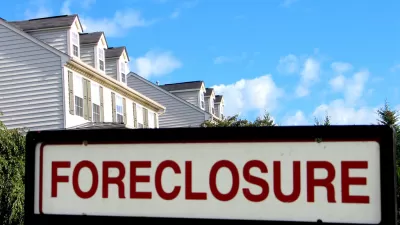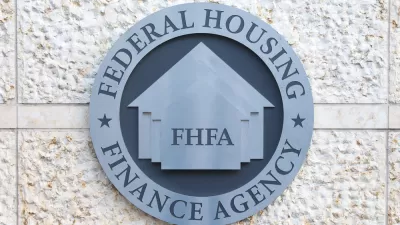The popularity of the mortgage forbearance program enabled by the CARES Act is one reason not to fear a housing crash like the Great Recession, yet.

"Mortgage delinquencies hit a record in April, well above anything seen during the Great Recession," reports Andrew Van Dam. "Some 3.4 percent of Americans became at least 30 days delinquent on their mortgage in April, according to a new analysis from CoreLogic."
While such high delinquency rates would usually indicate a sign of a housing crash to come, Van Dam offers a caveat about the many uncertainties of the current economy, and says a housing crash like in the Great Recession isn't certain.
"For starters, the new delinquency figure includes an unknown number of households who are late on their payments because their loans are in forbearance, CoreLogic chief economist Frank Nothaft said." More details on the popularity of the mortgage forbearance program enabled by the CARES Act is included in the source article.
The mortgage delinquencies data also stands in contrast to industry reports of sales of new houses increasing faster than any year since 2005—at the peak of the housing boom of the aughts.
In additional bad news about the economy and health of the housing market, new data from Apartment List indicates that 32 percent of households haven't yet made their housing payments for the month of July.
FULL STORY: An indicator that presaged the housing crisis is flashing red again

Alabama: Trump Terminates Settlements for Black Communities Harmed By Raw Sewage
Trump deemed the landmark civil rights agreement “illegal DEI and environmental justice policy.”

Study: Maui’s Plan to Convert Vacation Rentals to Long-Term Housing Could Cause Nearly $1 Billion Economic Loss
The plan would reduce visitor accommodation by 25% resulting in 1,900 jobs lost.

Why Should We Subsidize Public Transportation?
Many public transit agencies face financial stress due to rising costs, declining fare revenue, and declining subsidies. Transit advocates must provide a strong business case for increasing public transit funding.

Wind Energy on the Rise Despite Federal Policy Reversal
The Trump administration is revoking federal support for renewable energy, but demand for new projects continues unabated.

Passengers Flock to Caltrain After Electrification
The new electric trains are running faster and more reliably, leading to strong ridership growth on the Bay Area rail system.

Texas Churches Rally Behind ‘Yes in God’s Back Yard’ Legislation
Religious leaders want the state to reduce zoning regulations to streamline leasing church-owned land to housing developers.
Urban Design for Planners 1: Software Tools
This six-course series explores essential urban design concepts using open source software and equips planners with the tools they need to participate fully in the urban design process.
Planning for Universal Design
Learn the tools for implementing Universal Design in planning regulations.
Caltrans
Smith Gee Studio
Institute for Housing and Urban Development Studies (IHS)
City of Grandview
Harvard GSD Executive Education
Toledo-Lucas County Plan Commissions
Salt Lake City
NYU Wagner Graduate School of Public Service





























